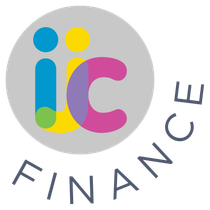Income Support during the COVID-19 crisis
Isobel Chaplin •
March 26, 2020
In these unsettling times, the UK Government has announced a variety of initiatives aimed at assisting businesses so that the economy is kept going and those affected by the closure of businesses and self-isolation are also supported.

Self-Isolation and Sick Pay
If an employee is unable to work due to self-isolation or having their health affected by Covid-19, then with the support of an Isolation Note (which is available through the NHS website) small and medium-sized employers can reclaim SSP from Day 1 of absence up to 2 weeks (14 days).
HMRC are working on a mechanism to facilitate the repayments as soon as possible.
Coronavirus Job Retention Scheme
The Government is offering financial assistance to help employers retain employees for an extended period, although offering no work and avoiding lay-offs. This is called the Coronavirus Job Retention Scheme (CJRS) and, while little information has been published to date, we have some facts and tips on this grant which will be updated as more details are released.
The scheme is available to all UK businesses and all employers who had a PAYE scheme up and running by 28th February 2020.
An employer must deem an employee as a “furloughed worker” and inform them of this change in order to access the grant, which will pay 80% of an employee’s salary up to £2.5K per month. It is up to the employer whether they top up the remaining 20% or just pay the 80% Government contribution. All data for this scheme will be sent across to HMRC via an online portal, which is in the process of being set up. We are unsure when this will be fully up and running but there are hopes for this to be by the end of April.
Self-Employment Income Support Scheme
To assist self-employed workers who have been negatively affected by Covid-19, the Government have just announced a Self-Employment Income Support Scheme (SEISS) which will provide a grant to individuals who are self-employed as sole traders or in partnerships of 80% of their profits up to £2.5 per month, to give parity with employed workers. HMRC will use the average profits of the 2016/17, 2017/18 and 2018/19 Self-Assessment profits and will offer grants to those whose average profit is under £50K per year.
The scheme is open to individuals who have submitted a tax return for 2018/19 and HMRC have allowed a 4-week window from now to submit any returns for this period which are outstanding (the deadline for this being 23rd April). The individual must also be currently trading (i.e. have income and profits for 2019/20) and be expected to continue trading into 2020/21. They must also receive over half their total income from self-employment.
HMRC will contact directly the individuals who can benefit from this scheme and are looking to start paying grants by the beginning of June.
Limited company directors – what’s the deal?
At the moment it is unclear how the pay of a director of a limited company is to be treated. There is much speculation on whether or not a director will be treated as an employee for the purposes of the CJRS. In reality it is unlikely that a director will actually stop working on their business due to working on advertising, HR and communications, formulating action plans and therefore deciding how the business is to move forward. They cannot be classed as a “furloughed worker” if they are still working in this way.
On the other side of the discussion, a director of their own company is not strictly self-employed either as they are classed as an employee of the limited company under PAYE rules. Therefore, they may not be eligible for the SEISS either.
As I have said above, this is all speculation at the moment and the accounting community are not 100% sure on how to treat this class of “worker”. We are hoping there will be further clarification on what can be claimed by these individuals as this will no doubt affect a lot of people.
There is the potential to claim for Universal Credit (UC), but this does depend on the total household income.
Share this post..
Facebook
X
LinkedIn
WhatsApp






